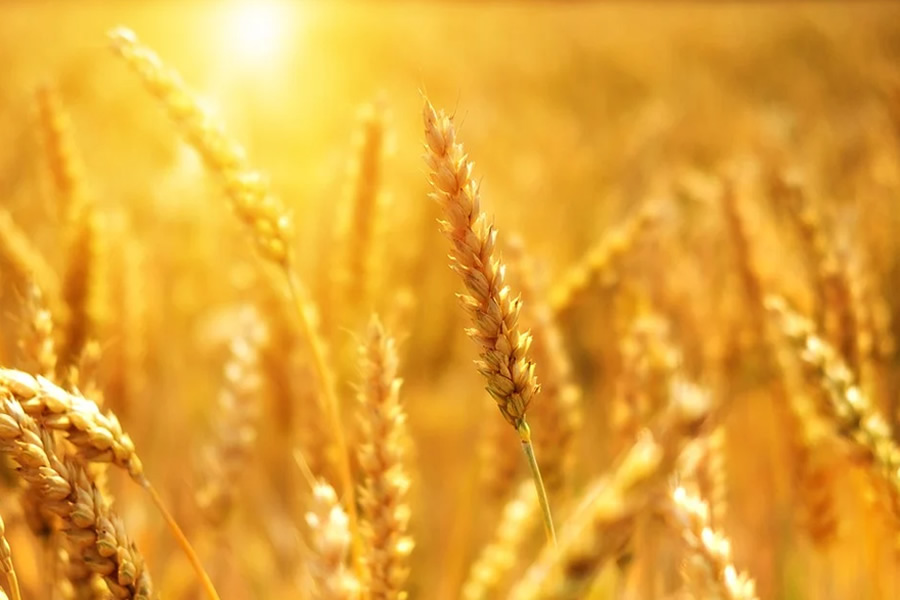
The Eucharist as Sacred Meal - Part 1
07-21-2024Weekly ReflectionReflection from mycatholic.lifeWe shall begin with the theme of the sacred meal, and we shall set this theme in the widest possible biblical framework. The opening line of the book of Genesis tells us that “in the beginning...God created the heavens and the earth” (Gen 1:1). Why did God, who is perfect in every way and who stands in need of nothing outside of himself, bother to create at all?
READ MORE
The Source & Summit
07-14-2024Weekly ReflectionReflection from mycatholic.lifeIn 2019, the respected Pew Forum released the results of a survey of Catholics in regard to their belief in the Eucharist. Along with many others, I was startled when I read the data, for I discovered that only one-third of those questioned subscribed to the Church’s official teaching that Jesus is really, truly, and substantially present under the signs or appearances of bread and wine.
READ MORE
On the Great Goodness and Love Shewn by God to Man in this Sacrament
07-07-2024Weekly ReflectionThe Imitation of Christ, Book IV, pg. 226—Thomas à KempisTrusting in your goodness, Lord, in your great mercy, I come in my sickness to him who can make me well; hungered and athirst, I come to the fountain of life, a beggar to the King of Heaven, a servant to his Lord, a creature to his Creator, one lonely and sad to him who loves and consoles me. But what have I done to deserve that you should come to me? Who am I, that you should make me a gift of yourself? Dare I, a sinner, appear before you? And do you forget your greatness and come to a sinner? You know this servant of yours; you know nothing good of him, to make him deserve this gift at your hands.
READ MORE
The Faith of Jairus
06-30-2024Weekly ReflectionReflection from mycatholic.lifeJairus was the leader of the synagogue in Capernaum. In that position, he would have been pressured to be in opposition to Jesus. But his daughter was ill, and his daughter was more important to him than the opinions of the other religious leaders of the time. So he humbly came to Jesus by himself, fell at Jesus’ feet and pleaded with Him to heal his daughter. Jairus makes two acts of faith in Jesus. The first was his request that Jesus heal his infirmed daughter. But the second took even more faith. On the journey with Jesus to see his daughter, he received the sorrowful news that his daughter had died.
READ MORE
On the Great Care We Should Take in Preparing to Receive Christ in Holy Communion
06-23-2024Weekly ReflectionThe Imitation of Christ, Book IV, pg. 248—Thomas à KempisThe Beloved: I am a lover of purity and the giver of all holiness. It is a pure heart that I look for; that is the place in which I rest. Make ready for me a large upper room, furnished; there will I and my disciples eat the Paschal meal with you... Everyone who loves another makes ready for that beloved friend of his the best and most beautiful room he has; in so doing he shews his loving joy at welcoming his friend to his home.
READ MORE
Guided by the Spirit of Truth
06-16-2024Weekly ReflectionReflection from mycatholic.lifeO Spirit of truth, make me know your Word; teach me to remember all he has said; enlighten me, guide me, make me conformable to Jesus as an alter Christus, another Christ, by giving me his virtues, especially his patience, humility, and obedience; let me take part in his redemptive work by making me understand and love the cross.
READ MORE
Sincere Repentance
06-09-2024Weekly ReflectionReflection from mycatholic.life“Amen, I say to you, all sins and all blasphemies that people utter will be forgiven them. But whoever blasphemes against the Holy Spirit will never have forgiveness, but is guilty of an everlasting sin.” For they had said, “He has an unclean spirit.” Mark 3:28–30
Jesus spoke these words to the crowds who had gathered around His home in Capernaum because two groups of people had just spoken very critically of Him in a public way. First, some of His extended family arrived and said to everyone, “He is out of his mind.” And then some of the scribes from Jerusalem said, “He is possessed by Beelzebul.”
READ MORE
Wonder & Awe Before the Eucharist
06-02-2024Weekly ReflectionReflection from mycatholic.lifeAt the holy Mass, as soon as the priest pronounces the words of the consecration, transforming the bread and wine into the Body and Blood, Soul and Divinity of Jesus Christ our Lord, he genuflects, rises, and then says, “The mystery of faith.” What is “the mystery of faith?” Oftentimes, when we say that something is a mystery, we mean that the conclusion is hidden but that there are certain clues to help solve the mystery. And once the mystery is solved, everything is clear and it is no longer a mystery.
READ MORE